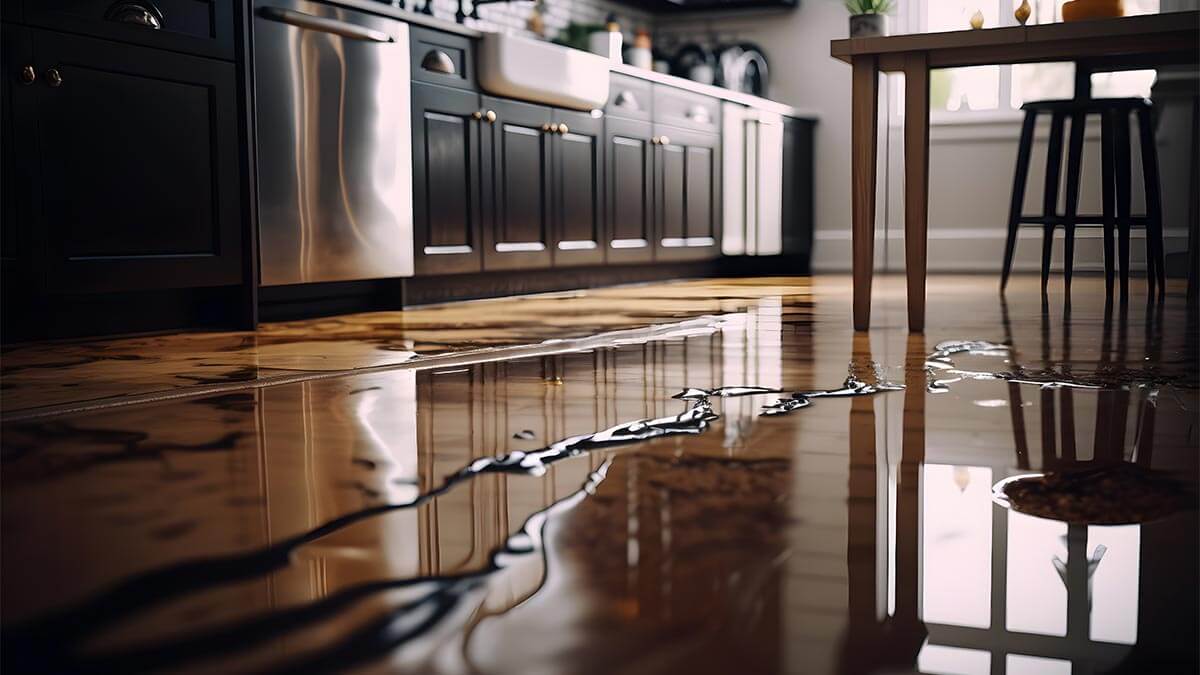Selling a house with sewer problems can be a daunting task, but it’s not uncommon. Sewer issues can significantly impact the value and marketability of a property, making it crucial for homeowners to address these concerns effectively.
Understanding and resolving sewer problems is essential for ensuring a smooth and successful sale.
For those looking for a quick solution, iBuyer services offer a hassle-free way to sell a home, even with sewer problems.
Selling a House With Sewer Issues
Compare Cash Offers from Top Home Buyers. Delivered by Your Local iBuyer Certified Specialist.
One Expert, Multiple Offers, No Obligation.
Understanding Sewer Problems
Types of Sewer Problems
Common sewer problems include blockages, leaks, and broken sewer lines. Blockages can cause backups and slow drainage, leading to unpleasant odors and potential water damage.
Leaks in sewer lines can result in water damage, mold growth, and structural issues within the home. Broken sewer lines are the most severe, often causing significant structural damage, soil erosion, and health hazards due to sewage exposure.
Causes of Sewer Problems
Sewer problems can arise from various causes, including aging infrastructure, tree root intrusion, and improper maintenance. Older pipes may corrode, crack, or deteriorate over time, making them more susceptible to leaks and breaks.
Tree roots can infiltrate and damage sewer lines as they search for water and nutrients, leading to blockages and structural issues. Regular maintenance and proper usage are crucial to preventing these problems from escalating and causing extensive damage.
Legal Considerations
Disclosure Requirements
When selling a house with sewer problems, homeowners are legally obligated to disclose any known issues to potential buyers. This disclosure is essential to maintain transparency and avoid legal repercussions.
Failing to disclose known sewer problems can lead to lawsuits, financial penalties, and the potential cancellation of the sale. Providing buyers with detailed information about the sewer issues helps build trust and ensures a smoother transaction process.
Potential Liabilities
Not disclosing sewer problems can expose homeowners to significant liabilities. Buyers who discover undisclosed issues after the sale can take legal action against the seller for misrepresentation or fraud.
This can result in costly legal fees, repair expenses, and potential damages awarded to the buyer. To avoid these risks, it is crucial for sellers to be upfront about any sewer problems and provide all necessary documentation, including inspection reports and repair records.
Assessing the Sewer Problem
Inspection and Diagnosis
The first step in addressing sewer problems is to get a thorough inspection by a professional. A qualified plumber or a sewer inspection company can conduct a detailed assessment using advanced tools like cameras to inspect the inside of the sewer lines.
This inspection helps identify the specific issues, such as blockages, leaks, or breaks, and provides a clear understanding of the extent of the problem. Regular inspections can also help prevent minor issues from becoming major problems.
Evaluating the Severity
Once the inspection is complete, evaluating the severity of the sewer problems is essential. This evaluation involves determining the extent of the damage, the potential impact on the property, and the urgency of the repairs.
Minor issues like small blockages or leaks might only require simple fixes, while significant problems like extensive root intrusion or broken pipes might need more comprehensive solutions. Assessing the severity helps homeowners make informed decisions about the necessary repairs and their potential impact on the property’s value and marketability.
Sewer Problem Solutions
Repair vs. Replacement
When dealing with sewer problems, homeowners must decide whether to repair or replace the sewer lines.
Repairing Sewer Lines:
- Pros:
- Lower upfront cost compared to replacement.
- Less disruptive and faster process.
- Cons:
- May be a temporary fix if the underlying issues are not fully addressed.
- Frequent repairs can add up over time.
Replacing Sewer Lines:
- Pros:
- Provides a long-term solution by addressing the root cause of the issues.
- Can increase the property’s value and appeal to potential buyers.
- Cons:
- Higher upfront cost.
- More disruptive process that may involve excavation and significant labor.
Choosing between repair and replacement depends on the severity of the damage, the age of the sewer system, and the homeowner’s budget. Consulting with a professional plumber can help determine the best course of action.
Costs Involved
The cost of addressing sewer problems varies widely based on the extent of the damage and the chosen solution.
- Repair Costs: Minor repairs like clearing blockages or fixing small leaks can range from $300 to $1,000. More extensive repairs, such as fixing a broken pipe section, might cost between $1,000 and $4,000.
- Replacement Costs: Replacing the entire sewer line can be significantly more expensive, typically ranging from $3,000 to $30,000, depending on factors like the length of the line, the depth of the pipes, and the accessibility of the area.
Selling Strategies for Homes with Sewer Problems
Pricing Adjustments
When selling a house with sewer problems, pricing adjustments are often necessary to attract buyers.
- Impact on Valuation: Sewer issues can significantly lower a home’s market value. To compensate, consider setting a lower asking price to reflect the costs and effort needed for repairs. A reduced price can make the property more appealing to buyers looking for a bargain.
- Competitive Pricing: Research similar properties in the area to determine a competitive price. This helps ensure the house is priced attractively despite its issues, increasing the likelihood of attracting interested buyers.
Marketing the Home
Effective marketing strategies can help highlight the strengths of a home, even with sewer problems.
- Highlighting Positives: Emphasize the home’s best features, such as location, size, and any recent renovations or updates unrelated to the sewer issues. Showcase aspects that add value and appeal to potential buyers.
- Transparency and Honesty: Be upfront about the sewer problems in the listing. Providing full disclosure builds trust with buyers and prevents surprises during the inspection process. Honesty can also attract buyers who appreciate the transparency and are prepared to handle the repairs.
Targeting Specific Buyers
Certain buyer groups may be more willing to purchase a home with sewer problems.
- Investors and Flippers: Real estate investors and house flippers often seek properties with issues they can buy at a lower price, fix up, and sell for a profit. These buyers are typically more experienced with handling repairs and may overlook the sewer problems if the price is right.
- DIY Enthusiasts: Some buyers enjoy taking on fixer-upper projects and may be interested in a home with sewer issues they can address themselves. Highlighting the potential for customization and improvement can appeal to this group.
Negotiating with Buyers
Handling Buyer Concerns
When selling a house with sewer problems, addressing buyer concerns proactively is crucial.
- Open Communication: Maintain open lines of communication with potential buyers. Clearly explain the nature and extent of the sewer issues, and provide any documentation or inspection reports that detail the problem.
- Offer Solutions: Suggest viable solutions to the sewer problems, such as repair estimates from professionals. Buyers are more likely to proceed with the purchase if they understand the problem and see a clear path to resolving it.
- Negotiate in Good Faith: Be prepared to negotiate in good faith. Acknowledge the buyers’ concerns and be flexible in discussions regarding price adjustments or repair credits.
Offering Incentives
Incentives can make a property with sewer problems more attractive to potential buyers.
- Repair Credits: Offering repair credits is a common strategy. This allows buyers to handle the sewer repairs themselves after purchase, using the credit to offset the costs. This approach can alleviate immediate financial burdens for the seller while providing buyers with the funds needed for repairs.
- Price Reductions: Reducing the sale price to account for the cost of sewer repairs can also attract buyers. A lower price point can make the property more appealing, especially to buyers willing to undertake repairs in exchange for a better deal.
- Flexible Closing Terms: Consider offering flexible closing terms, such as an extended closing period, to give buyers time to arrange for sewer repairs before moving in. This can make the transaction smoother and more attractive to buyers.
Conclusion
Selling a house with sewer problems may seem daunting, but with the right strategies and professional assistance, it is entirely possible. By being transparent, proactive, and willing to negotiate, homeowners can find buyers who are willing to take on the necessary repairs.
- Understanding Sewer Problems: Identifying common sewer issues and their causes.
- Legal Considerations: Importance of disclosing known sewer problems to potential buyers.
- Assessing the Sewer Problem: The value of professional inspections and severity evaluations.
- Solutions: Options for repair vs. replacement and associated costs.
- Selling Strategies: Pricing adjustments, marketing tactics, and targeting specific buyers.
- Negotiating with Buyers: Addressing buyer concerns and offering incentives.
For those looking to streamline the process and avoid the hassle of extensive repairs, consider contacting iBuyer for a consultation. iBuyer can provide quick, as-is purchase options that take the stress out of selling a home with sewer issues.
Instant Valuation, Confidential Deals with a Certified iBuyer.com Specialist.
Sell Smart, Sell Fast, Get Sold. No Obligations.
FAQ Section
Yes, you can sell your house as-is with sewer problems. However, expect a lower selling price and a smaller pool of potential buyers. Investors and DIY enthusiasts are often interested in such properties, but transparency about the issues is crucial.
Sewer problems can significantly reduce your property’s value. Potential buyers may be deterred by the repair costs and inconvenience, leading to lower offers or extended time on the market.
Whether you should fix the sewer problem before selling depends on the severity of the issue, the cost of repairs, and your financial situation. Consulting with a real estate professional can help you make an informed decision.
Yes, failing to disclose known sewer problems can lead to legal consequences. Disclosure laws require homeowners to inform potential buyers of any known issues, and non-disclosure can result in lawsuits or financial penalties.
Reilly Dzurick is a seasoned real estate agent at Get Land Florida, bringing over six years of industry experience to the vibrant Vero Beach market. She is known for her deep understanding of local real estate trends and her dedication to helping clients find their dream properties. Reilly’s journey in real estate is complemented by her academic background in Public Relations, Advertising, and Applied Communication from the University of North Florida.




